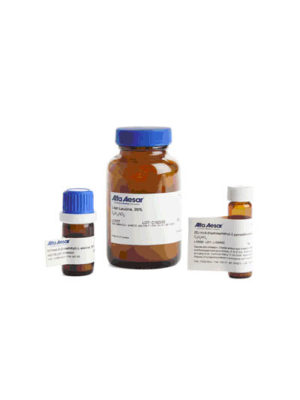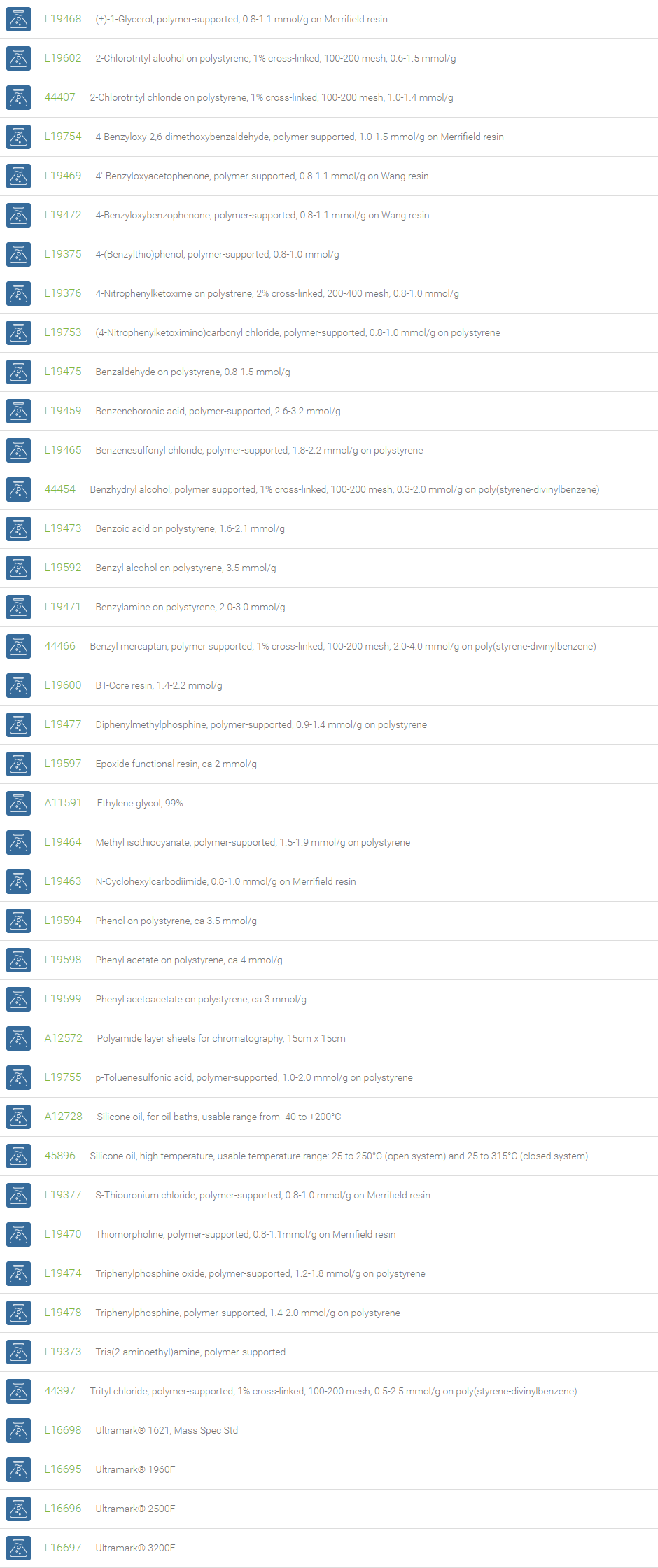Polymer Supported Materials

Polymer Supported Materials
Polymers are macromolecules, composed of repeating units of monomer units. Polymers have emerged as solid supports for reagents, scavengers, and catalysts to aid in the purification of solution phase libraries. Polymer-supported reagents and catalysts are used because of their easy recovery after completion of the reaction. A polymer-supported Pd complex catalyst is a solid-phase catalyst, which consists of the amphiphilic copolymer ligands, chloride and palladium. It takes up substrates and reagents of both a hydrophilic and hydrophobic nature in the vicinity of the palladium surface to smoothly promote the reaction. These polymer-supported palladium catalysts are insoluble both in water and organic solvent; hence they can be recovered easily and reused many times.
Polyimide produced by the reaction of pyrometallic dianhydride and 3,5-diamino- 1,2,4-triazole is loaded with Mo(IV) & used as a catalyst in the epoxidation of cyclohexene with tert-butylhydroperoxide. Poly(4-vinylpyridine)-supported sodium ruthenate is used as recoverable catalyst in the oxidation of alcohols. Several primary and secondary alcohols are oxidised using this catalyst to corresponding aldehydes or ketones with greater than 90% yield. Polymer scavengers are functionalized polymers that are designed to react with and bind excess reagents and byproducts, facilitating their removal by simple filtration. Trace metals and impurities can be removed from pharmaceutical products with these scavengers with no compromise on product yield. The main advantage of polymer-supported reactions is that, at the end of the reaction, the polymer-supported species are cleaned easily.


